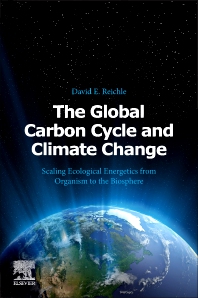Books in Energy conservation and environment
Books in Energy conservation and environment
- 1st Edition
- March 20, 2020
- Hideki Takebayashi + 1 more
- English
- Paperback9 7 8 0 1 2 8 1 7 6 2 4 5
- eBook9 7 8 0 1 2 8 1 7 6 2 5 2

Adaptation Measures for Urban Heat Islands
- 1st Edition
- February 15, 2020
- Amr Mohamed
- English
- Paperback9 7 8 0 1 2 8 1 9 0 4 5 6
- eBook9 7 8 0 1 2 8 1 9 0 4 6 3

Energy Efficiency of Medical Devices and Healthcare Applications
- 1st Edition
- November 22, 2019
- Martin Junginger + 1 more
- English
- Paperback9 7 8 0 1 2 8 1 8 7 6 2 3
- eBook9 7 8 0 1 2 8 1 8 7 6 3 0

Technological Learning in the Transition to a Low-Carbon Energy System
- 1st Edition
- November 8, 2019
- David E. Reichle
- English
- Paperback9 7 8 0 1 2 8 2 0 2 4 4 9

The Global Carbon Cycle and Climate Change
- 1st Edition
- October 18, 2019
- Manuela Tvaronaciene + 1 more
- English
- Paperback9 7 8 0 1 2 8 1 7 6 8 8 7
- eBook9 7 8 0 1 2 8 1 7 6 8 9 4

Energy Transformation towards Sustainability
- 1st Edition
- September 17, 2019
- Junyi Zhang
- English
- Paperback9 7 8 0 1 2 8 1 5 9 6 5 1
- eBook9 7 8 0 1 2 8 1 6 2 8 4 2

Transport and Energy Research
- 1st Edition
- September 1, 2019
- Ibrahim Dincer + 1 more
- English
- Paperback9 7 8 0 1 2 8 1 9 5 5 6 7
- eBook9 7 8 0 1 2 8 1 9 5 5 7 4

Energy Sustainability
- 1st Edition
- June 15, 2019
- Wojciech Stanek + 3 more
- English
- Paperback9 7 8 0 1 2 8 1 3 1 4 2 8
- eBook9 7 8 0 1 2 8 1 3 1 4 3 5

Thermo-ecology
- 1st Edition
- June 10, 2019
- Nikolay Belyakov
- English
- Paperback9 7 8 0 1 2 8 1 7 0 1 2 0
- eBook9 7 8 0 1 2 8 1 7 0 1 3 7

Sustainable Power Generation
- 3rd Edition
- March 9, 2019
- Marc J. Rogoff + 1 more
- English
- Paperback9 7 8 0 1 2 8 1 6 0 7 9 4
- eBook9 7 8 0 1 2 8 1 6 0 8 0 0
